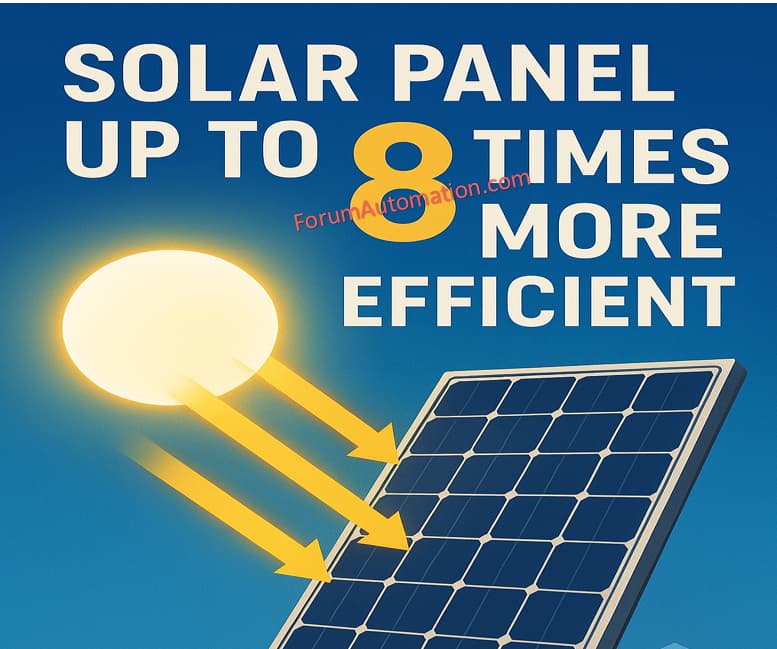Japan’s revolutionary titanium-based solar panels might be 1,000 times more efficient, marking a significant breakthrough in renewable energy technology.
Scientists in Japan have developed a new form of titanium-based solar panel that has the potential to significantly change the future of solar electricity. These upgraded panels are expected to be up to 1,000 times more efficient than standard silicon-based panels.
What makes these panels so powerful?
- Nanotechnology and
- Material science
are key areas of innovation.
Titanium dioxide (TiO₂) created at the nanoscale & treated under accurate conditions may absorb a greater spectrum of sunlight, including UV and visible light.
This increases photoelectric conversion efficiency well beyond typical norms.
Unlike regular solar panels, which primarily depend on silicon cells & have an average efficiency of 15-22%, these titanium-based cells have the potential to achieve super-high efficiency because:
- Enhanced light absorption,
- Reduced energy losses,
- Increased thermal stability &
- Longer operational life
Advantages
- Increased Power Output: Panels can generate up to 1,000x more electricity under similar solar (sunlight) conditions.
- Eco-Friendly Production: Titanium dioxide is abundant & non-toxic, making it a more environmentally friendly alternative to silicon.
- Low Maintenance: Titanium is corrosion-resistant, thus it requires less maintenance in the long run.
- Compact & Lightweight: Titanium is both durable & lightweight, making it suitable for a wider range of uses, including vehicles, structures, and wearable technology.
While still in the prototype (or) lab testing phase, this technology suggests a future in which solar energy is far more potent, accessible, and sustainable.
Japan’s effort may spur global investment in next-generation solar technologies, bringing us closer to the zero-emission energy systems.
You can also follow us on AutomationForum.co, Facebook and Linkedin to receive daily Instrumentation updates.
You can also follow us on ForumElectrical.com , Facebook and Linkedin to receive daily Electrical updates.
